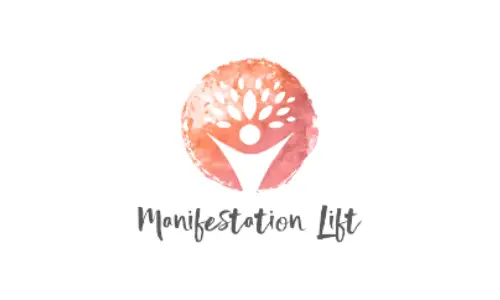You have a number of things clear in your mind that you wish to attract into your life. You’ve heard people talk about manifesting, so you want to create your perfect life with your ideal house, car, romance, and bank balance. However, there is one slight issue. You suffer from depression.


These people talk about the Law of Attraction like it’s a private club that you can only join if you’re already vibrating on a positive, high frequency. It’s a form of spiritual gaslighting that you should not pay any attention to.
And you can guarantee that the people who say it have never been through clinical depression so have no awareness of dealing with a chemical imbalance in the brain.
But the truth of the matter is that you can attract everything you want, despite suffering from depression. I did it myself, so let me explain how.
When I was in my early 20’s, I developed severe anxiety. And, as is the case with lots of people, this led to depression. It was so acute that I felt confined to my house. I didn’t have any friends, and there was no way I could go out to work – I couldn’t even go to the store.
At the time, I lived with my parents, and I could tell that they had almost given up on me.
The desperation was immense. It felt like my life was on a downward spiral, and there was never going to be a way to stop it or climb back up. I had lost all hope and felt trapped.
I could never imagine feeling happy again, and I could not see a solution.
Fortunately, something happened where I was introduced to the Law of Attraction.
This might be your turning point. Maybe the fact that you have come across my words today means that this is also your time to change.
The Law of Attraction taught me many things. It wasn’t just about manifesting things into my life; it actually helped me retrain my brain to overcome my depression. It taught me to understand and change what was going on for me at a subconscious level that kept me trapped in a depressive state.
So, I’m not just trying to cheer you up by saying that you can manifest things into your life if you have depression: I’m living proof that it can be done!
I survived a paralyzing depression. There were times when I honestly did not think I would live to tell the tale, and at times, I didn’t even care. But I did, and I want to share a bit more with you about what I learned from that experience.
Debunking the “high vibration” myth.
One of the first things I noticed when learning about the Law of Attraction was the importance of vibrating at a high energy level to manifest things in life. The theory suggests that if your energy is vibrating at a low frequency, you may experience emotions like depression, anxiety, and neediness. According to the Law of Attraction, what you put out into the Universe is what you get back. So, emitting negative energy can attract negative situations and more negativity. On the other hand, if you vibrate at a high frequency, you’ll radiate positive emotions such as love, happiness, and gratitude. This means you’ll manifest things that bring you joy and happiness. The concept emphasizes that you need to feel genuinely happy and content with your life to manifest positive outcomes.
At the time, this concept was somewhat demoralizing for me. Even on my good days, I didn’t always experience such intense positive emotions. While it made some sense, I couldn’t help but feel that the Law of Attraction might be more complex than just high and low vibrations. What about the nuances? We’re all unique individuals, after all. My idea of a “high vibration” might be completely different from yours.
In exploring this further, I discovered the benefits of mindfulness meditation. Mindfulness meditation is a practice that promotes mental well-being and can help manage depression and anxiety symptoms. By being present and aware of the physical sensations and feelings in your body, you can cultivate a sense of peace and balance. Techniques like body scan meditation, walking meditation, and loving-kindness meditation can be part of your mindfulness practice. Research suggests that mindfulness meditation can even benefit those with recurrent depression or major depressive disorder. It can help calm the fear center in the brain and reduce symptoms of depression.
By incorporating mindfulness meditation into your life, you can bring awareness to your thoughts, feelings, and emotions. This practice can help you navigate the complexities of the Law of Attraction and cultivate a positive mindset. As you continue your meditation practice, you may notice your stress levels falling and your overall well-being improving. So, embrace the shades of gray and explore what works best for you on your journey of manifestation and personal growth.
Who decides what classes as high and low?
We’re not as simple as lab rats, where you can put us in a cage and expect identical results if you put us through the same tests. We’re much more complicated than that, and our lives, experiences, thoughts, and feelings are not the same.
Plus, the process of manifestation is even more individual because it comes from such a personal, private, internal place.
The way our emotions fluctuate is unique, so the key to successfully manifesting when you have depression is first to measure your baseline.
Think of a scale from 1 to 10. 1 equals the most depressed you have ever felt, and 10 is the happiest.
On average, what score would you currently give as your happiness rating?
If you say 3, for example, that is your baseline figure.
So on a day when you feel like a 4 or 5, that would class as a higher frequency vibration for you!
It doesn’t have to be up at 8 or 9. Whatever you score is right for you, and it’s all relative.
Many people simply don’t understand what it means to have a chemical imbalance and suffer from depression.
But you don’t need to compare yourself to other people. You are your own measure of good days and bad days. Even if you feel unable to achieve the same stability that other people seem to have, you can recognize your own fluctuations.
For example, if it’s a horrible battle to get out of bed most mornings, but one day you’re able to get up, take a shower and make your bed without too much effort, that’s definitely a good day!
You’re vibrating on a much higher level that day – and it’s important to recognize that because it’s those days that are the best ones for doing your manifestations.
Stating your desires.
When you’ve established and are aware of your emotional baseline, you’re in a much better place to recognize the best time to state the things you wish to manifest.
The optimum time is when you are experiencing a higher vibrational frequency than your baseline.
The higher, the better, but remember that it’s totally ok if your ‘high vibe’ isn’t quite as high as the next person.
We have to play the game with the hand we’ve been dealt.
There are several ways you can state your desires to the Universe when you feel above your baseline. As like attracts like, it’s important to use positive wording (affirmations) and form your wish as if you already have it. You need to be specific about what you wish to manifest in your life and layout your desires from a position of positivity rather than lack.
For example, “Money comes easily to me,” or “I have a job that I love. Every day that I work, I feel challenged and satisfied”.
You can write out your manifestation desires in a journal, you can say them out loud, you can record them as voice notes, or you can repeat them in your own head.
I do have to say that it’s not the best idea to try and manifest your goals when you’re feeling at your baseline or lower. It’s a bit of a futile exercise and will probably only make you feel worse when it doesn’t work!
Don’t put any additional stress on yourself, and just wait until you’re feeling over your baseline. It’s not worth forcing it, especially if you’re having a bad time anyway.
Give yourself some space and time, and do it when you’re in the best mindset for it to work. It’s worth the wait!

What’s the best thing to do when feeling low?
Let’s delve into the exploration of emotional baselines. If you happen to be dealing with clinical depression, you may frequently find yourself in periods of extremely low mood. This is a result of a chemical imbalance in the brain, which triggers overwhelmingly negative emotions such as desperation, stress, anxiety, grief, and hopelessness. In such moments, even accomplishing simple everyday tasks can feel incredibly challenging, let alone contemplating activities like creating vision boards or writing manifestation affirmations. Engaging in these activities during a low spell would likely only drain your time and precious energy.
Conversely, when your mood falls below your baseline, it’s important not to be too hard on yourself or feel pressured to overcome it quickly. Instead, allow your body to guide you and listen to its needs. If that means staying in bed, then embrace it. If you feel the urge to binge-watch Netflix all day while devouring a tub of ice cream, grant yourself permission to do so. Your body, mind, and energy require time to recharge and gradually return to your baseline.
If you are currently experiencing an intense depressive episode, the most crucial focus should be on taking care of yourself. Avoid forcing anything and remember that there’s no rush. Take things slowly and, step by step, when you feel up to it, encourage yourself to engage in activities that uplift your vibrational frequency. This could be as simple as taking a shower, preparing breakfast, enjoying a coffee with a friend, or going for a walk. These seemingly small yet significant actions indicate that you are emerging from your depressive episode and that your vibration is gradually elevating. Allow things to unfold at their own pace and take steady steps forward.
As you navigate through this journey, consider exploring meditations for depression, mindfulness meditation, mindfulness-based cognitive therapy, and other techniques that can aid in managing depression, reducing stress, and alleviating symptoms of anxiety. By cultivating a meditation practice, you can develop a deeper connection with the present moment, gain insights into your negative thoughts, and foster a greater sense of self-compassion. Such practices can help reduce the impact of depressive symptoms, regulate the stress response, and promote overall mental well-being.
Remember, there are various other treatments and approaches available to support you in treating depression. Addressing negative memories, managing self-criticism, and developing resilience in stressful situations are all essential components of the healing process. By acknowledging and addressing your feelings, stress, and fears, you can gradually find a path towards better mental health and well-being.

What happens if my mood drops?
Another common myth that you might come across is the belief that if your mood changes and your vibration drops after declaring your manifestation desire with a high frequency, the Law of Attraction won’t work. This idea puts unnecessary pressure on people and is quite alarming.
We’re all human beings and we experience both good and bad days. It’s impossible to be constantly firing on all cylinders and feeling incredibly happy and positive 24/7. In fact, experiencing dissatisfaction in some areas of our life can motivate us to make positive changes.
When you have stated your desire to the Universe and started the manifestation process, it’s important to know that your depression won’t cancel it out completely. While it may slow down the manifestation process, it will never completely stop it.
So please don’t worry that your desires won’t come true just because you’re not feeling as positive as when you initially stated them. It’s not true and it’s a limiting belief that will only add more pressure.
Instead, focus on allowing yourself to go through each day, processing and experiencing each emotion as needed. Remember to take care of your mental health by exploring mindfulness meditation, mindfulness-based cognitive therapy, and other meditation practices that can help manage depression, anxiety, and reduce stress levels. By being present in the moment and practicing self-compassion, you can treat depression and improve your overall well-being.
Remember, meditation can have a positive impact on your mental health by reducing negative thoughts, managing depression symptoms, and improving self-esteem. It can also help with stress reduction, managing anxiety, and improving overall brain health.
So, let go of negative thinking, embrace meditation as a form of self-care, and explore the various meditation practices that can support your mental health journey.
Manifestation tips for when you have depression
There are numerous manifestation techniques available to utilize. As previously mentioned, you can write positive affirmations and recite them aloud or record them, create a vision board, engage in guided meditation, and more. These are just a few examples. I’m certain you are already familiar with some, if not more, of these techniques.
However, I want to conclude this article with several tips specifically aimed at individuals who wish to manifest but are dealing with major depressive disorder. These points can be used in conjunction with any other techniques you choose, and before long, you will find it much easier to manifest everything you desire.
It’s important to prioritize your mental health during this process. Incorporating mental health meditation, body scan meditation, and loving kindness meditation can help alleviate negative feelings associated with major depressive episodes. By addressing negative thought patterns and allowing yourself to acknowledge and process thoughts and feelings, you can make significant progress in manifesting your desires.
Practicing meditation, both in physical postures and through mental exercises, can positively impact brain regions that are involved in negative thought spirals and fear center activation. While conventional medical care is essential, incorporating meditation can complement your treatment and contribute to your overall well-being.
Meditation can also help reduce stress levels and promote a sense of calmness. Engaging in walking meditation and focusing on the present moment can be particularly beneficial for individuals experiencing recurrent depression. By redirecting your attention and cultivating awareness, you can gradually alleviate symptoms of depression and regain control over your feelings.
Remember, your brain is a powerful tool, and by actively working on transforming negative thought patterns and addressing fear, you can manifest your desires while nurturing your mental and emotional well-being.
1.) Accept your unhappiness
In reality, rather than being a negative thing, feeling dissatisfied can be a fantastic catalyst to manifesting something new in your life.
As I said before, if we’re never unhappy, how can we ever know that we need to change something and strive for something better?
Just ignore the blogs and articles where the “experts” try to persuade you that low mood will leave the manifestation process ineffective. It’s totally untrue!
It’s a completely natural human emotion that we all experience at different times and to different extents. When we harness it properly and use it to guide us, unhappiness can be a constructive feeling.
The first thing to do is to look at why you feel unhappy. This needs to be done at quite a deep level, so do it when you’re feeling up to it. You can start to write a journal and do some introspection to access your shadow side. Initially, you might not be aware of what makes you unhappy, but by raising your self-awareness, this will become clearer.
What needs to change in your life to help you feel happier? When you know the answer to this question, this is your starting point for writing your affirmations and statements of what you desire from the Universe.
2.) Start small
If manifesting large changes in your life seems difficult at the moment due to your depression, then start small and simple and later build yourself up.
For example, you could start with manifesting a parking space somewhere where you know it’s usually difficult to park, or a drink with a friend.
Once you notice that you’ve been able to manifest these things, you will become more confident in your ability to create things, so you can set your sights higher. When you manifest something, even a free coffee, the positivity you feel will begin to raise your vibration and make it easier to manifest larger things with more success.
It gathers momentum, and rather than walking slowly, you will soon feel that you are jogging, then running, and then sprinting towards your manifestation destiny!
3.) Cherish the little things
You’re probably already aware that feeling grateful can greatly impact your mental well-being and manifestation abilities. However, when dealing with clinical depression, it can be challenging to generate a sense of gratitude. Here’s some advice to help you:
Instead of trying to feel grateful on a large scale, focus on appreciating the little things. For example, when having a bad day, be thankful for your comfortable bed or your favorite flavor of ice cream. By concentrating on the present moment and the small things that bring you some comfort, you can make the moment more bearable.
You might even try feeling gratitude for your depression. While it may sound strange, your experience with depression can teach you valuable lessons that others may never discover about themselves and life.
Remember, clinical depression is a complex illness, but you have control over how you handle and perceive it. By shifting your perspective, you may find that this challenge was given to you because you are strong enough to overcome it and grow from it.
As Byron Katie said, “Everything happens for you, not to you.” While we may not always like our lives, we can choose how we react and learn from the obstacles we face. The important thing is to keep moving forward, one step at a time, regardless of speed, as it’s all part of the journey towards feeling better.
Accept yourself and your feelings throughout this process. Never consider yourself at a disadvantage because you also have the power to manifest what you want into your reality.
Remember to seek support from a mental health professional, as they can provide guidance and support tailored to your needs. Additionally, incorporating mindfulness meditation and other meditation practices can be beneficial for managing depression, negative thoughts, and anxiety symptoms. Physical exercise, such as walking meditation, can also help manage stress levels and improve emotional control.
Depression cannot take that power away from you!
As Buddha said:
“Each morning, we are born again. What we do today is what matters most.”







